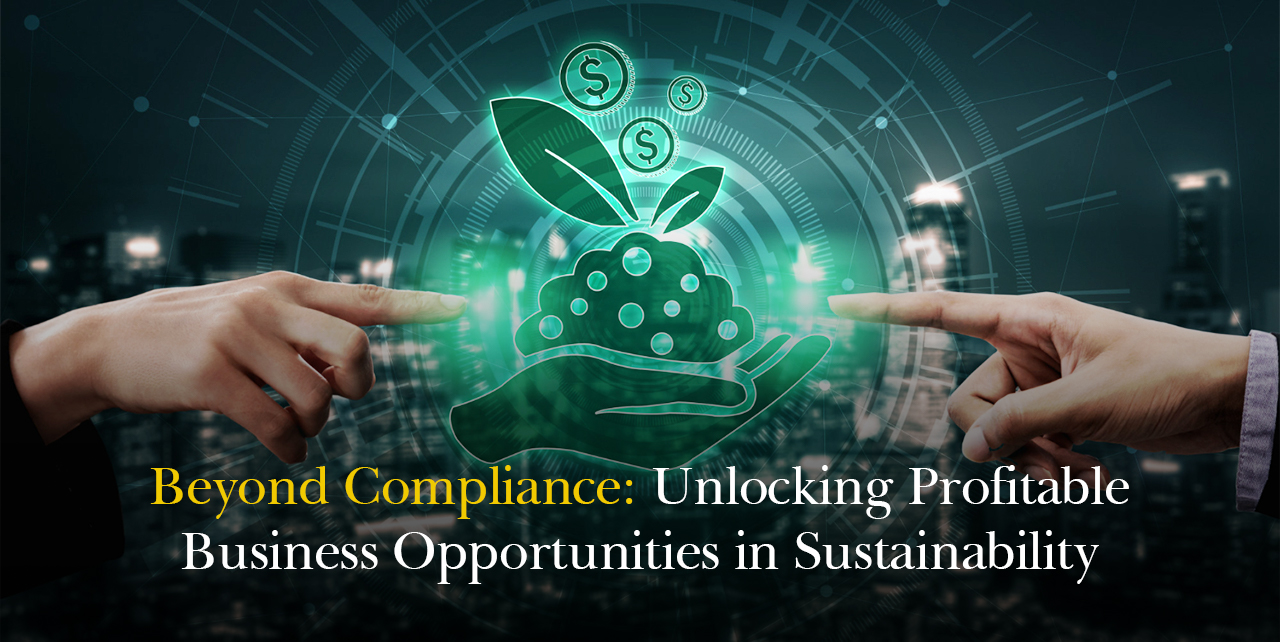Sustainability is no longer just a regulatory checkbox, it’s a powerful strategy for a business to remain profitable and sustainable. Companies that go beyond compliance can unlock new revenue streams, attract investors, and build long-term resilience. By integrating sustainability into their business strategy, organisations can reduce costs, drive innovation, and strengthen their brand reputation. Fuller Impact plays a role in this transformation by providing ESG consulting, workforce upskilling, and sustainability management solutions, helping businesses leverage sustainability as a competitive advantage.
Moving Beyond Minimum Standards
Regulatory compliance ensures that businesses meet legal requirements, but proactive sustainability efforts create market differentiation. The EU’s Corporate Sustainability Reporting Directive (CSRD) mandates ESG transparency, yet companies that use these insights strategically can attract ethical investors and build stakeholder trust. Fuller Impact supports businesses in developing sustainability-driven strategies that go beyond compliance, positioning them as industry leaders rather than followers.
Green Product Innovation
The demand for sustainable products is skyrocketing, with eco-conscious consumers willing to pay a premium for environmentally friendly alternatives. Companies can capitalize on this by developing biodegradable packaging, plant-based products, or energy-efficient technologies. For instance, brands like Tesla and Beyond Meat have turned sustainability into a competitive advantage, creating products that align with environmental values while driving strong financial returns.
The Circular Economy Advantage
A circular economy approach opens up new business models where waste is minimised and resources are reused. Companies can generate additional revenue through upcycling, refurbishing, or offering product-as-a-service solutions. For example, IKEA now buys back used furniture, while Patagonia sells refurbished gear under its Worn Wear program. These models reduce environmental impact while tapping into consumer demand for sustainable consumption.
Sustainable Supply Chains & Cost Efficiency
Sustainability also drives efficiency. Businesses that adopt energy-efficient operations, responsible sourcing, and carbon footprint reduction strategies often see significant cost savings. Companies like Unilever and Walmart have optimised supply chains to reduce waste and energy consumption, leading to long-term financial and environmental benefits. Digital tools such as blockchain and AI help companies track and improve sustainability metrics in real time.
ESG Investments and Attracting Green Capital
Investors are increasingly prioritizing businesses with strong Environmental, Social, and Governance (ESG) performance. Companies with sustainability commitments attract impact investors, ESG funds, and government incentives. Businesses that proactively embrace sustainability are better positioned to secure funding and gain investor trust.
Sustainability is more than compliance, it’s a business growth strategy. Companies that proactively integrate ESG practices can unlock innovation, attract investment, and future-proof their operations. Fuller Impact empowers businesses to navigate this transformation by providing sustainability consulting, training, and digital solutions. To learn more about how Fuller Impact can help your business thrive in the green economy, visit Fuller Impact.


